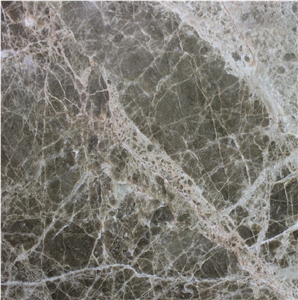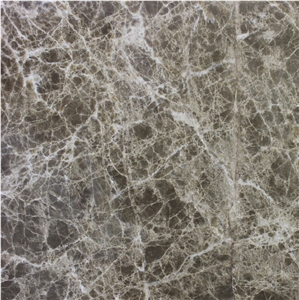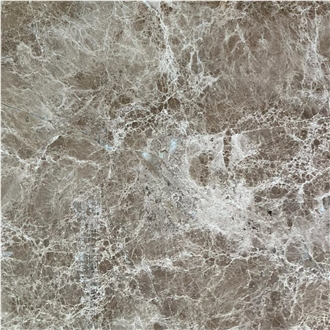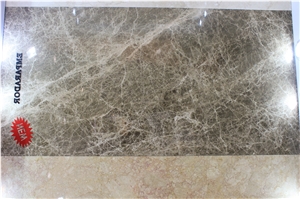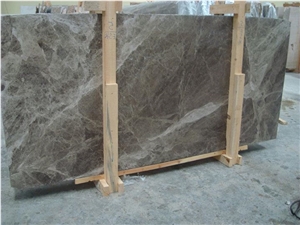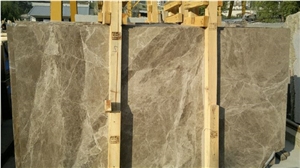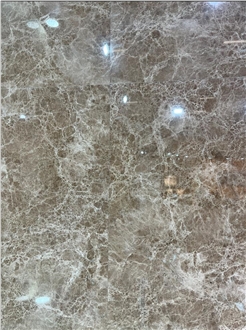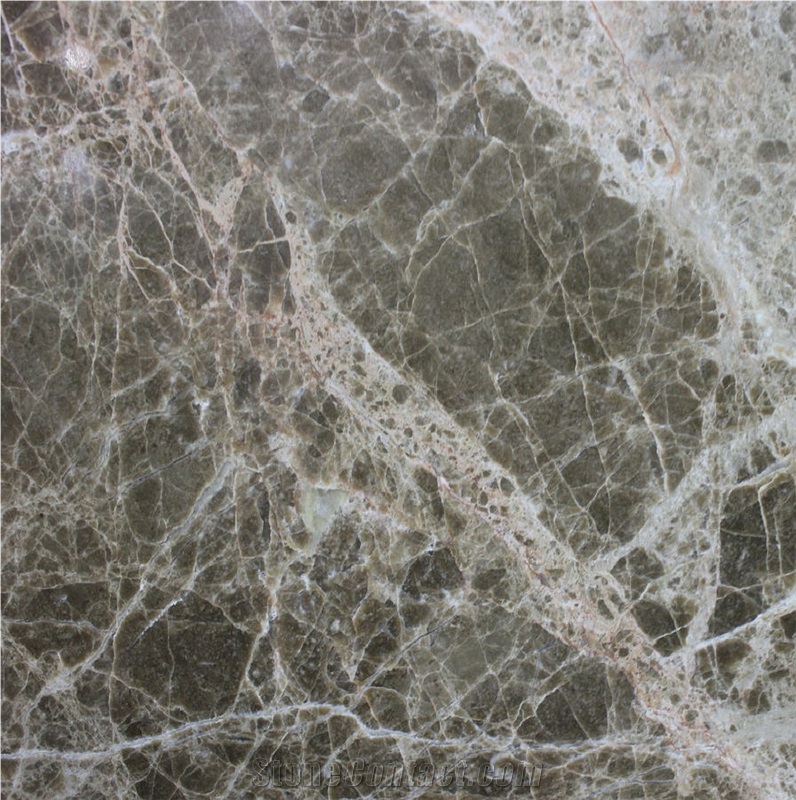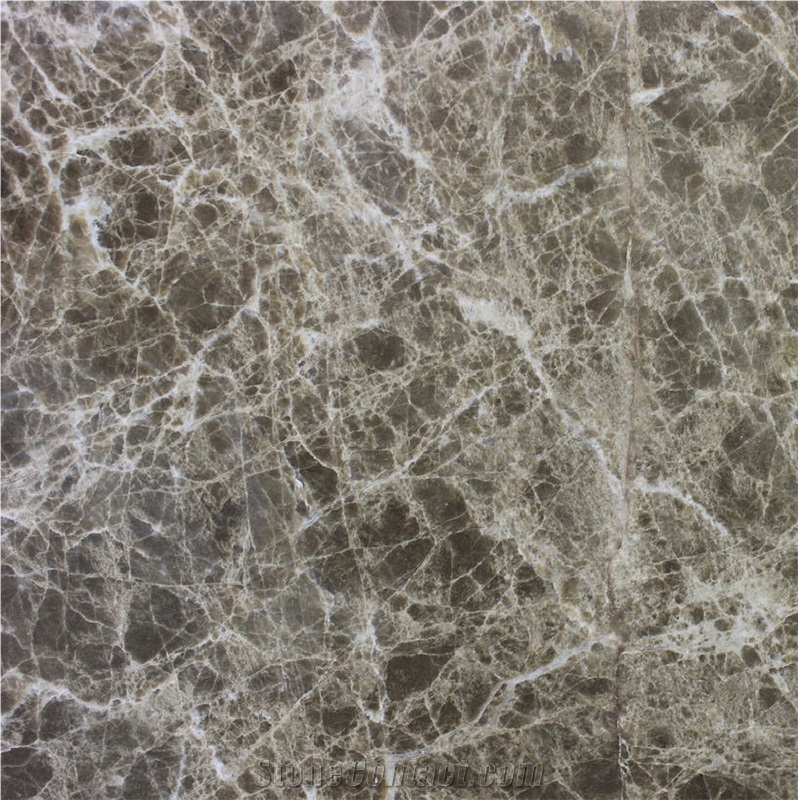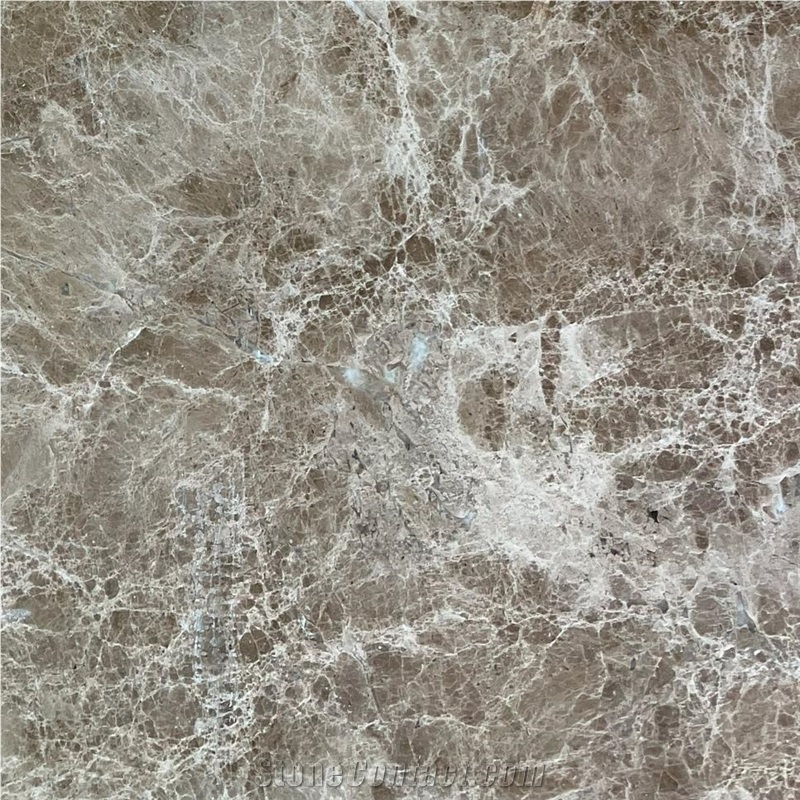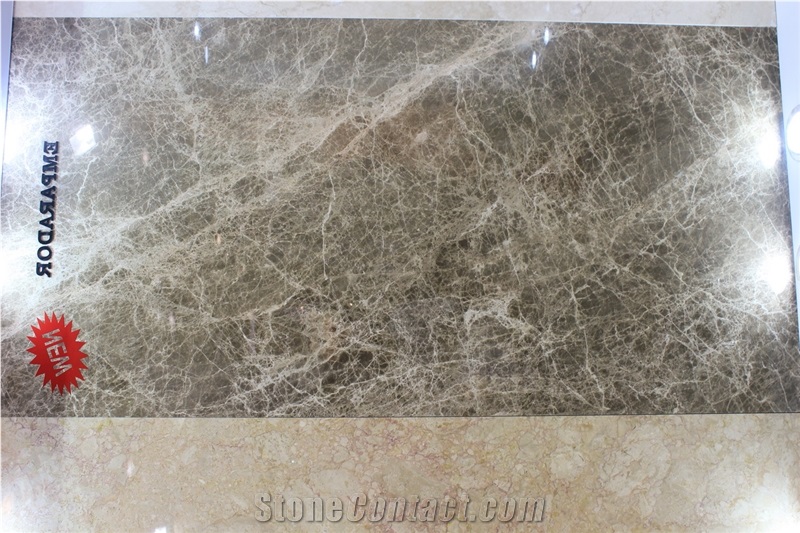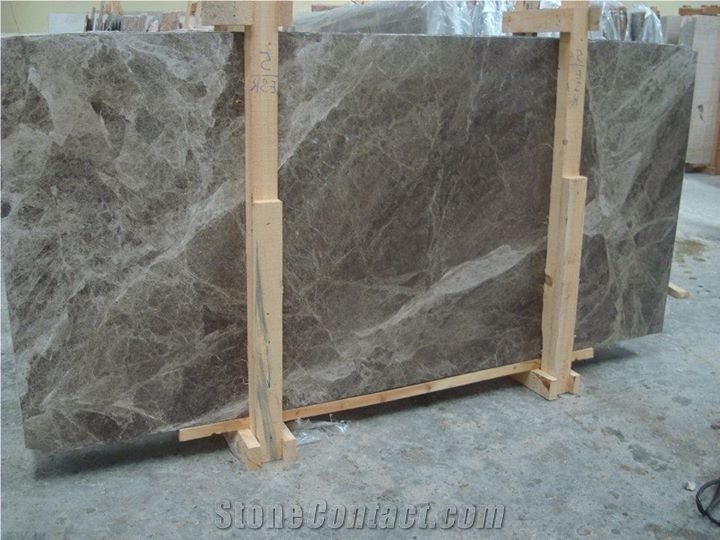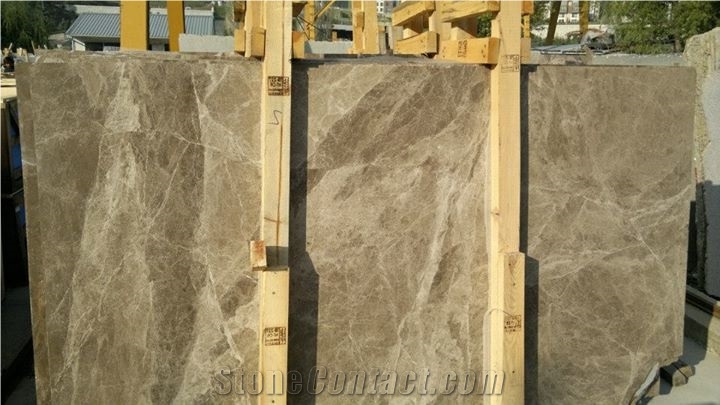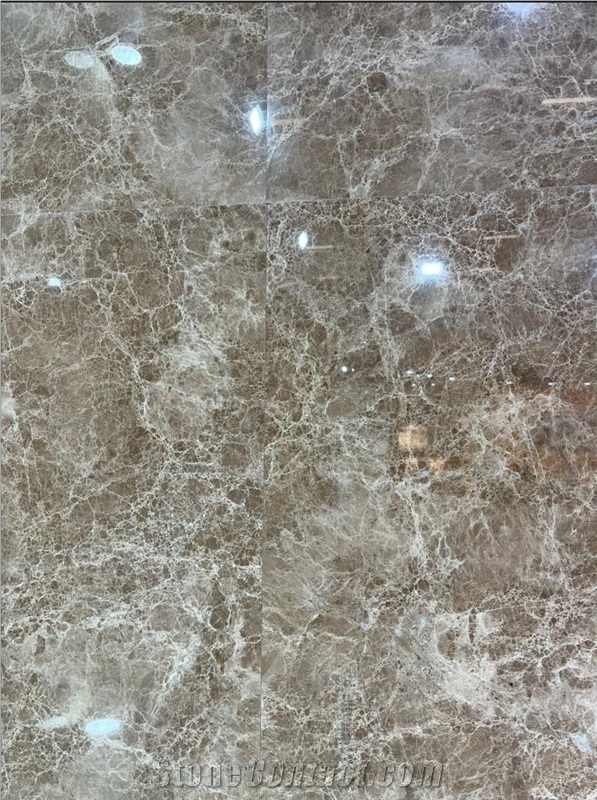Konya Emparador Marble
 Turkey
(Derebucak, Konya and Beyşehir, Konya)
Turkey
(Derebucak, Konya and Beyşehir, Konya)
Konya Emparador Marble is a remarkable natural stone known for its rich cedar brown coloration with subtle streaks and hues. Quarried in the Derebucak region of Konya and the Bey?ehir district of Konya, Turkey, this marble variety is highly regarded for its elegant appearance and versatility in architectural and design applications. Here's a detailed description:
Color Palette: Konya Emparador Marble boasts a dominant cedar brown base color that imparts a warm and inviting ambiance. Within this primary hue, you'll find lighter streaks and hues, which can vary in intensity. These streaks often exhibit shades of beige, cream, or even lighter brown, creating a harmonious contrast against the dark backdrop.
Texture and Veining: The texture of Konya Emparador Marble is typically fine-grained, offering a smooth and polished surface that exudes sophistication. The marble may feature veining patterns that can be subtle or more pronounced, enhancing its visual appeal. These veins often follow organic and flowing patterns, adding depth and character to the stone.
Origin: Konya Emparador Marble is quarried in the Derebucak region of Konya and the Bey?ehir district of Konya, Turkey. The geological processes specific to these areas have contributed to the stone's unique coloration, texture, and the presence of distinctive veining.
Durability: This marble variety is valued for its durability and is suitable for various indoor applications. When properly maintained, it can maintain its beauty and integrity for many years, making it a favored choice for projects that demand both aesthetics and longevity.
Applications: Konya Emparador Marble's warm and elegant appearance makes it a versatile material for a wide range of architectural and design projects, including:
- Flooring: It is a popular choice for flooring in residential and commercial spaces, where its polished surface adds a touch of luxury and sophistication.
- Interior Cladding: The marble is used for interior wall cladding, creating a visually captivating backdrop in areas such as living rooms, kitchens, and bathrooms.
- Countertops: Konya Emparador Marble is often selected for kitchen and bathroom countertops, where its beauty and durability make it a functional and aesthetically pleasing choice.
- Fireplace Surrounds: The marble is employed to create fireplace surrounds, adding a sense of warmth and elegance to living spaces.
- Decorative Elements: It can be fashioned into decorative elements such as columns, molding, and intricate patterns, enhancing the overall design of interiors.
Aesthetic Appeal: The cedar brown color of Konya Emparador Marble, complemented by its light streaks and hues, creates an inviting and timeless aesthetic. Its versatility allows it to complement various architectural styles, from traditional to contemporary, making it a favored choice for those seeking a marble that exudes warmth and elegance.
In summary, Konya Emparador Marble is a cedar brown with light streaks and hues marble quarried in Derebucak, Konya, and Bey?ehir, Konya district of Turkey. Its elegant appearance, durability, and warm color palette make it a favored choice among architects, designers, and homeowners looking to incorporate natural marble into their construction and design projects, creating spaces that showcase both luxury and inviting charm.
Technical Specifications
Hardness (mosh) 3
Weight per unit of volume 2,69
Degree of porosity % 0,197
Humidity % 0,11
Water absorption at boiling water % 99,75
Strength to impact (kgf/cm2) 3,44
Compressive strength after frost (kgf/cm2) 74,3
Strength to bending (kgf/cm2) 141,85
Uniaxial compressive strength (kgf/cm2) 935,8
Kohesyon (kgf/cm2) 203,25
Internal friction angle (O) 49,7
Elastisite module (gpa) 35,37
Poisson 0,316
Point load strength (kgf/cm2) 57,8
Fullness rate % 99,59

What are the characteristics of Konya Emparador Marble?

Is Konya Emparador Marble a good choice for a fireplace?

What is the best way to clean Konya Emparador Marble countertops?

What is the difference between a Konya Emparador Marble baluster and a balustrade?

Can I fix scratches on Konya Emparador Marble?

Is polished Konya Emparador Marble floor mosaic slippery?

Can I clean Konya Emparador Marble kitchen floor with washing up liquid?

Is Konya Emparador Marble mosaic good for shower floor?

Is Konya Emparador Marble OK in the sun?

How do I keep Konya Emparador Marble floors from scratching?

Is Konya Emparador Marble UV resistant?

What is the coefficient of friction of Water Jet Cut Turkey's Konya Emparador Marble tiles?

What grade is Turkey's Konya Emparador Marble?

What type of edging does Konya Emparador Marble countertops have?

Can Turkey's Konya Emparador Marble be used outdoors?

Is Konya Emparador Marble good for high heat?

What is a standard edge on Konya Emparador Marble countertop?

How do I remove water rings from Konya Emparador Marble countertop?

Can Turkey's Konya Emparador Marble be used in landscaping?

Will Konya Emparador Marble crack with heat?

Is Konya Emparador Marble good for stairs?

Does Konya Emparador Marble reflect more heat than wood?

Can Turkey's Konya Emparador Marble be used exterior applications in cold climates?

Are there color variations of Turkey's Konya Emparador Marble?

How do I protect Konya Emparador Marble from heat?

Do Konya Emparador Marble floors scratch easily?

What is the minimum thickness of Konya Emparador Marble countertop edge profiles?

Can Turkey's Konya Emparador Marble be used in a office?

Is honed Konya Emparador Marble slippery for stairs?

Can I use vinegar to clean Konya Emparador Marble?

Is Turkey's Konya Emparador Marble an expensive stone?
-

-

 Turkey
Turkey

 Verified Supplier is for prove company authenticity,including business license,trade license and effective office space,to enhance buyers' trust to suppliers and their products, reducing communication costs.
Verified Supplier is for prove company authenticity,including business license,trade license and effective office space,to enhance buyers' trust to suppliers and their products, reducing communication costs.
Contact Supplier
-

-

-

-

-

-

Xiamen Pretty Funstone ( Masonry Quality Stone )
 China
China
 Verified Supplier is for prove company authenticity,including business license,trade license and effective office space,to enhance buyers' trust to suppliers and their products, reducing communication costs.
Verified Supplier is for prove company authenticity,including business license,trade license and effective office space,to enhance buyers' trust to suppliers and their products, reducing communication costs.
Contact Supplier
-

Xiamen Pretty Funstone ( Masonry Quality Stone )
 China
China
 Verified Supplier is for prove company authenticity,including business license,trade license and effective office space,to enhance buyers' trust to suppliers and their products, reducing communication costs.
Verified Supplier is for prove company authenticity,including business license,trade license and effective office space,to enhance buyers' trust to suppliers and their products, reducing communication costs.
Contact Supplier
The request includes: 1. surface finished, size 2. quantity required






